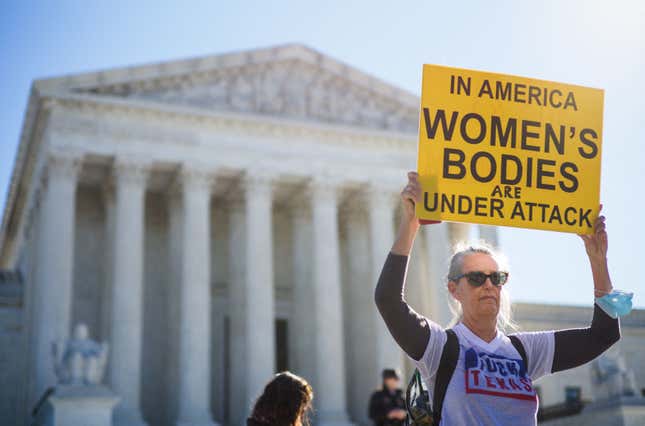United Nations Drags United States Over Terrible Abortion Policy
“We have this joke among us that when the US sneezes the rest of the world catches a [cold],” said Dr. Tlaleng Mofokeng, a UN health official.
AbortionPolitics

Even the United Nations is fed up with the United States over abortion policy. A doctor with the UN office responsible for tracking human rights abuses told the Supreme Court to uphold the right to abortion in an amicus brief filed in Dobbs v. Jackson Women’s Health Organization. Dr. Tlaleng Mofokeng, a doctor with the UN’s Office of the High Commissioner for Human Rights, whose sole job is monitor and advocate for the “highest attainable standard of physical and mental health,” said overturning Roe v. Wade would have a “catastrophic” ripple effect across the globe.
“We have this joke among us that when the US sneezes the rest of the world catches a [cold],” Dr. Mofokeng said in an interview with The Guardian published Monday. “So we know that politically that what happens in the United States… does have an impact in precedents elsewhere in the world.”
-

-

-

-

-

-

-

-

-

-

-

-

-

-

-

-

-

-

-

-

-

-

-

-

-

-

-

-

-

-

-

-

-

-

-

-

-

-

-

-








































